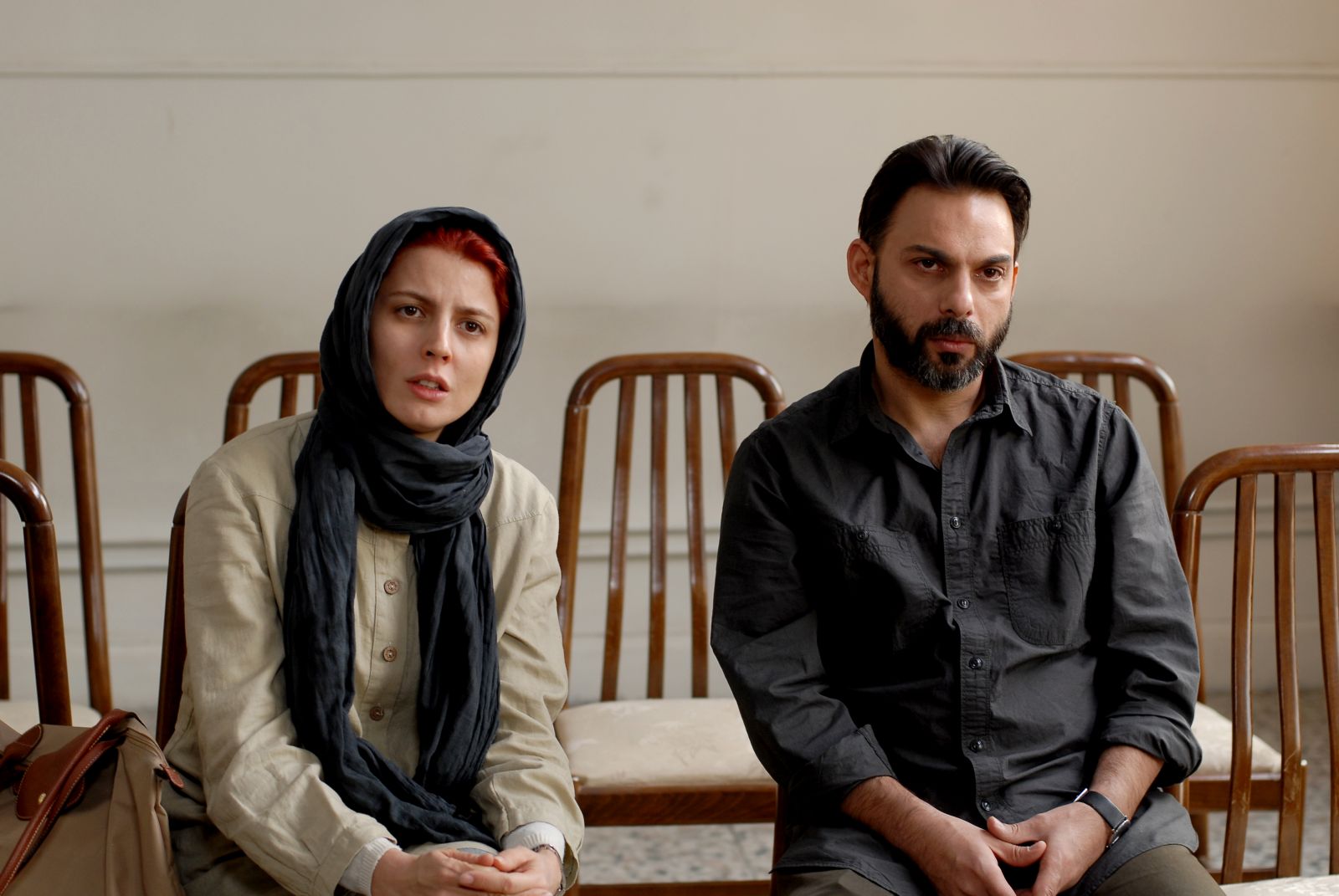

Simin and Nader are married. Simin and Nader want a divorce. There is a simple solution to this problem, yes? Get a divorce. Huzzah, we’re done! Boy, that was a short movie.
But wait, there’s more: Simin and Nader live in Iran. Simin, unsatisfied with the social conditions in the country (particularly, though this remains inexplicit, for women), wants to move to the West with Nader and their 11-year-old daughter Termeh. Nader does not seem to disagree, but cannot leave; his elderly father has Alzheimer’s, and he must stay behind to take care of him. The Iranian court decides this problem is “too small” to merit a divorce, although without a divorce, Simin will not be able to leave the country. Simin is furious — her daughter’s future is not a small problem to her.
But wait, there’s more: Simin, obviously frustrated with Nader, moves out to her parents’ house. Nader hires a maid, Razieh, to handle the household chores and look after his father while Nader is at work and Termeh is at school. Reziah, a pious woman, is conflicted and overwhelmed by the task of handling Nader’s father, who is too senile to even properly control his bodily functions. She hides her employment from her husband Hodjat, a hot-tempered, unemployed man who would not be pleased to hear either that she is attempting to pay off his debts, or that she is doing so by working in the house of a “single” man.
But wait, there’s more: one day, Reziah stumbles in her duties and Nader’s father nearly dies. Nader fires the maid and in his anger accuses her of also being a thief. A scuffle ensues as Nader throws Reziah out of the house.
But wait, there’s more, and more, and more. “A Separation,” the recent winner of the Academy Award for Best Foreign Language Film, opens as a marriage drama but quickly spirals into something broader, although it never expands out of its claustrophobic, domestic setting. Simultaneously a legal thriller, taut character study and subtle political/cultural commentary, Asghar Farhadi’s film is exhausting in the best way possible; it is not hard to follow the plot, nor especially disquieting to watch, but its characters constantly twist and turn and evaluate and re-evaluate each other, complicating every action and reaction.
Farhadi filmed on a handheld camera, and the movie’s rough, low-budget aesthetic is well in keeping with the work of Mohsen Makhmalbaf or the early films of Abbas Kiarostami, other prominent directors of the so-called Iranian New Wave. But there is a propulsion and precision to “A Separation” more reminiscent of Alfred Hitchcock or Sidney Lumet. Farhadi’s script is so well-realized that the audience’s sympathies can turn on a mere line or two of dialogue, much like Lumet’s courtroom drama “12 Angry Men.” Nothing is out of place; every shot and scene has its significant place in the whole.
For instance, the film opens with an enigmatic sequence of Simin and Nader’s identification documents being photocopied, presumably at the courthouse. The shots are superfluous to the narrative, but suggest that the dilemmas to follow run deeper than just the trouble of this particular couple: they are systematic, ingrained in contemporary Iranian society. Soon Simin and Nader are introduced, bickering over their divorce. They stare directly at the camera as they make their argument, immediately establishing a tone of confrontation and defiance. This is a film about tension: tension between husband and wife, between parent and child, between accuser and accused.
The conflicts between Simin and Nader, or between Nader and Reziah, are particularly anxious and strained experiences for the audience because they are, to their very core, ambiguous. Our loyalty flip-flops around from one character to the next, for there are no identifiable villains or heroes. These are all hard-working, well-intentioned, compassionate yet flawed people; they each have their own logical viewpoint, and there is no easy solution to their troubles. Chance and circumstance are to blame, not ill will.
Which is not to say that the characters, particularly the adults, don’t exacerbate those circumstances. They lie, omit information and passively pressure their children to make unfair, uncomfortable decisions. The latter point is especially crucial. Multiple times, Simin and Nader pass off responsibility that should be theirs on to their poor daughter: Termeh is faced with lying to keep her father out of jail, and ultimately she must choose which of her parents she wants to live with. These are burdens that no child should ever have to bear.
And this is the cycle that Farhadi subtly and scathingly criticizes. At the end of the film, Simin and Nader sit on opposite sides of a hallway in the courthouse, still unable to break their impasse. Somewhere in the building, we hear a fierce shouting match break out. A baby’s cry wails above the din. Nothing, in the end, has changed; the sins of our fathers and mothers are constantly handed down for the next generation to carry. It’s an idea that resonates far beyond just Iranian society.
There is not a single false note in “A Separation.” The acting feels absolutely natural and unaffected, even though the dialogue must have been meticulously written. The story confronts issues of religion, women’s rights and morality without advocating any particular agenda. This is expert, compelling filmmaking, and without a doubt the most deserving Oscar winner of the year.